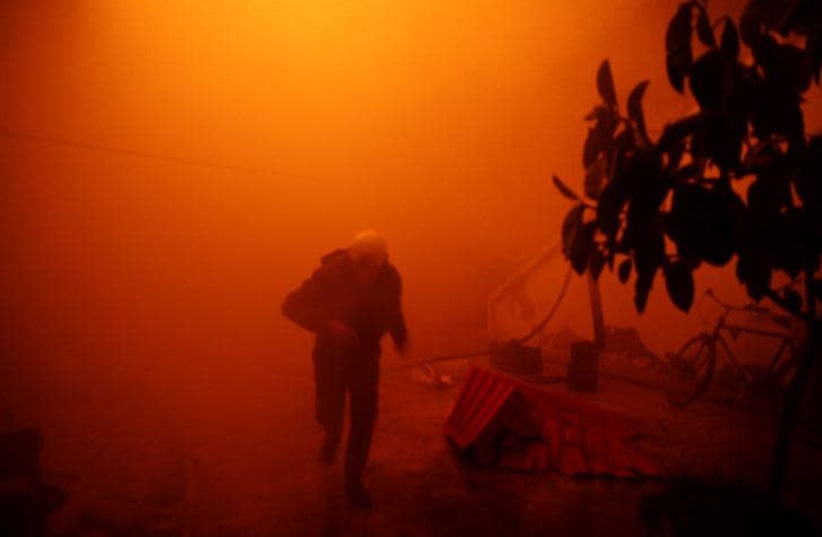Assad is indebted to the Russians who saved his bloody regime. In the beginning of the war, the Syrian army controlled as little as 15% of the country’s territory; today, Assad’s Putin-backed forces control most of the area and are close to emerging entirely triumphant. Russia’s determination is paving the way toward a situation where Vladimir Putin and the Iranian ayatollahs will manipulate their puppet-regime in Damascus to play crucial role in restoring the country’s economy to its prewar point. The task of helping Damascus overcome years of bloodbath will be based, at least partially, on utilizing the oil resources of the country. Moscow and Tehran want to control these precious resources to decide how and at what pace Syria will be rebuilt.
Although Prime Minister Benjamin Netanyahu did his best to prevent Iran’s presence in Syria, the Iranians are there to stay. Tehran will play a pivotal role in helping the Syrian army to rebuild its military arsenal. Israel needn’t be concerned about the fragile Syrian army, but must be cautious as the Iranian Revolutionary Guards start controlling the country through Assad’s regime. In any future conflict with foes like Hezbollah, Israel will have to pay close attention to the fact that the Iranian mullahs rule Damascus together with their Russian allies. Although there is some tension between Moscow and Tehran, evidenced by the recent attack of the Syrian military on the pro-Iranian forces in eastern Syria, the future of the country that was torn in the name of the Arab Spring is at the hands of two ruthless dictatorships.
The Arab Spring, which was the cause for the Civil War in Syria, is dead. In its place, a “Syrian Fall” is alive and well. The US, which opted not to interfere in Syria to benefit of the liberal forces that initiated this war, has no genuine policies with regard to the situation in the country. The US, with its isolationist tendencies, regards Russia as the responsible force for the situation in Syria. The White House has no intention to prevent the Russians from making Syria their Middle Eastern enclave and the Syrian people are destined to live under ruthless tyranny with tenuous civil liberties.
Iran will also benefit from the US isolationism, as its deteriorating economy will be able to open a new market to save itself from renewed American sanctions. The Iranians, whose control in Iraq intensifies daily following their communication business there, can forge a new axis of Middle Eastern evil by ruling the economies in Baghdad and Damascus. Haaretz recently reported that the Syrian regime intends to nationalize agricultural lands left behind by Syrian refugees and give them to fighters from Shi’ite militias supported by Iran.
It seems, therefore, that the Arab Fall in Syria will be marked by an Iranian presence with tight control over the Syrian economy. The West, especially the European Union, will help the Iranians to rebuild Syria. No one wants to see Syria becoming a second Libya and the West is ready and willing to pay the price. This new local and international order, an Arab Fall indeed, will make things complicated for Israel and its allies in Washington. The new Iranian grip in the north will pose serious challenges to the Israeli leadership.
In the end, those who were dreaming of a Spring that would put an end to decades of cruel despotisms across the Middle East find a new wintry reality even harsher than it was.
The writer is a prospective PhD student of ancient Near East at Bar-Ilan University, Israel.
